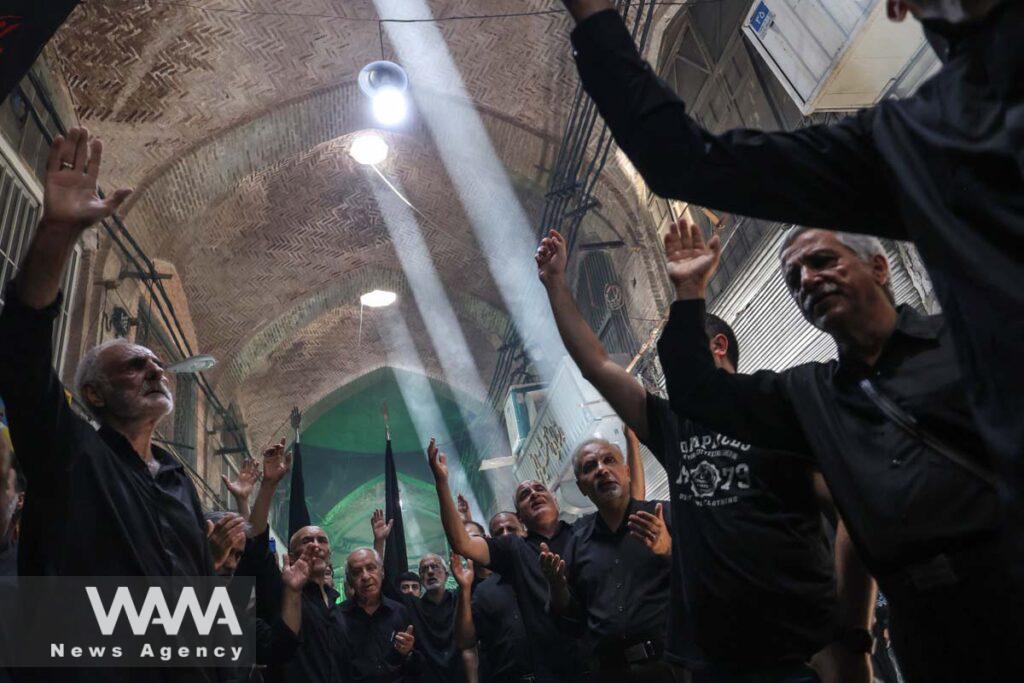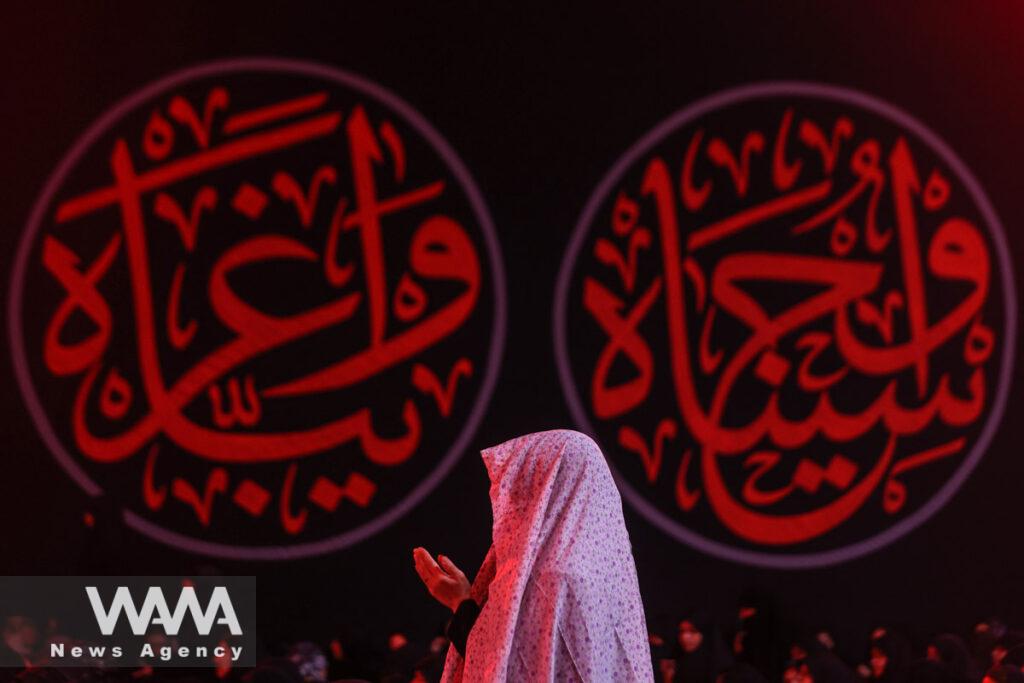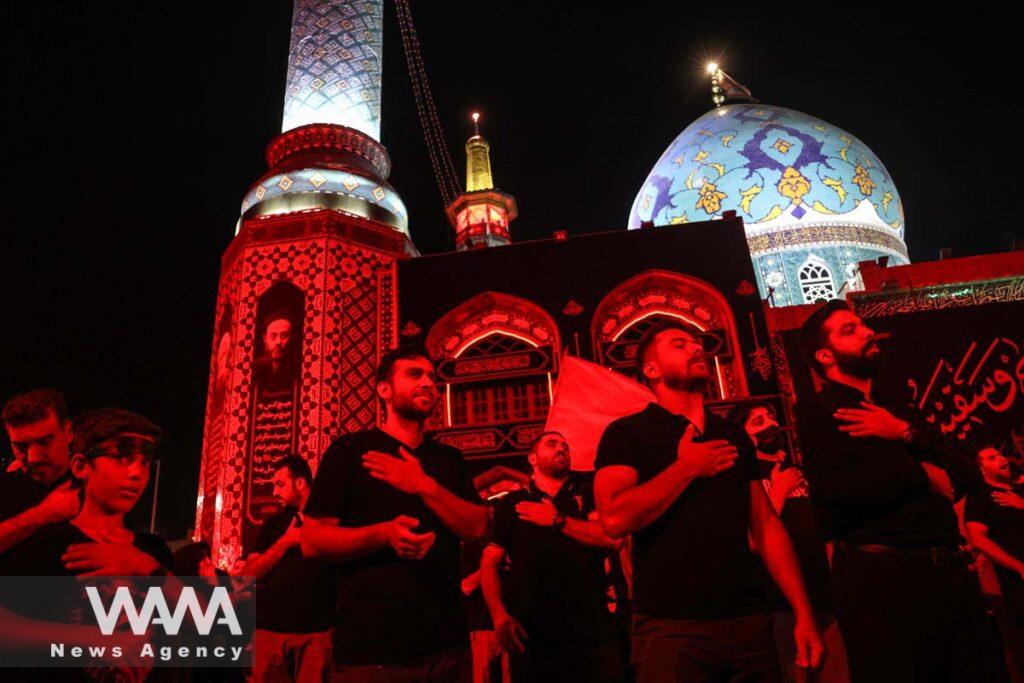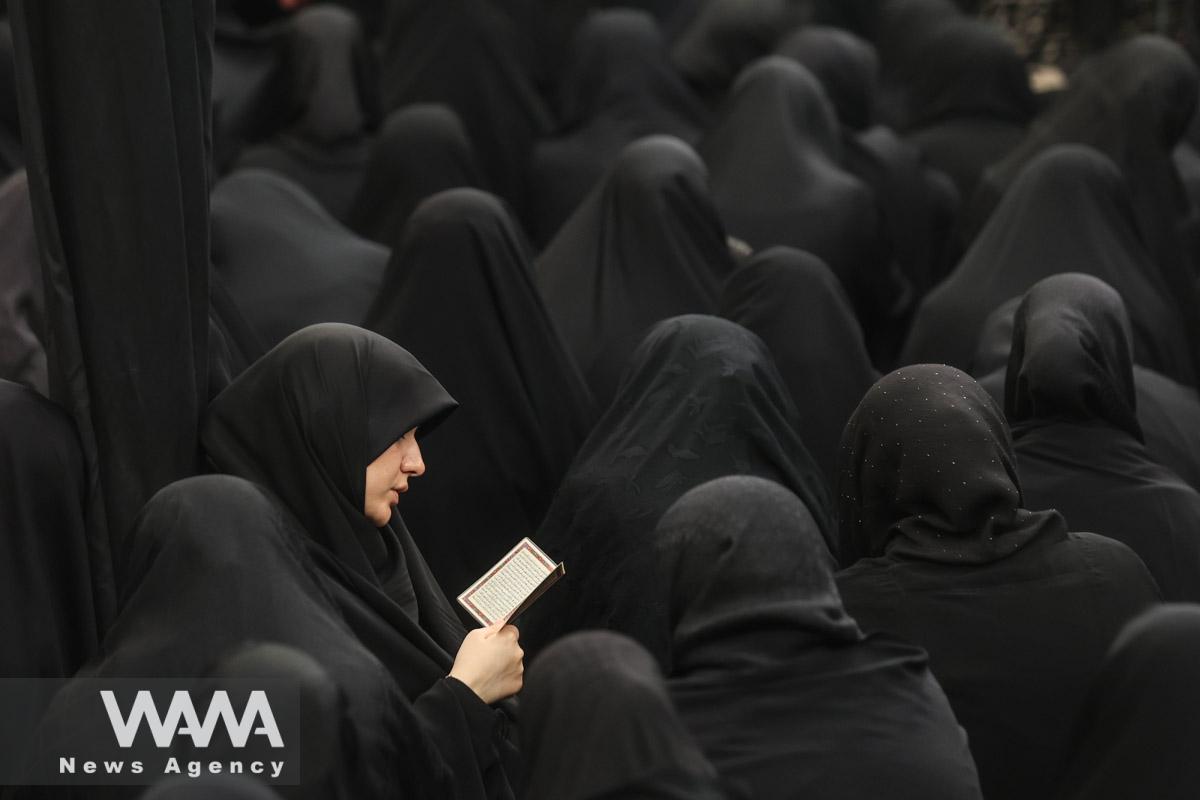Ashura in Iran and what it means
WANA (July 28) – It is that time of year again. Muharram is the first month of the Islamic calendar… since it is lunar, Muharram moves from year to year.
This year, Ashura, the 10th day of Muharram, falls on Friday in the country. If you happen to be in Iran or other countries with sizeable Shia communities, you will be presented with an immersive cultural experience. Streets are decorated with banners and flags, primarily red and black. People have set up stands giving away food and drinks (known generically as Nazri), and chanting of elegies and chest-beating happens throughout the day as tears run down the grief-stricken faces of mourners from all walks of life. The beat of the drums from “dasteh”- literally meaning group- will make the hair on your body rise.

Iranian Shi’ite Muslims participate in a mourning ritual ahead of Ashura, the holiest day on the Shi’ite Muslim calendar, in Tehran, Iran, July 26, 2023. Majid Asgaripour/WANA (West Asia News Agency)
But what is Ashura?
In history, Ashura marks the day of salvation for Moses and the Israelites, who successfully escaped from Biblical Egypt (where they were enslaved and persecuted) after Moses called upon God’s power to part the Red Sea.
But for Shia Muslims, Ashura is known for the battle of Karbala and the martyrdom of the prophet of Islam’s grandson, Imam Hussein.
The Battle of Karbala took place during the period of decay resulting from the succession of Yazid I in 680 AD.
Immediately after his succession, Yazid instructed the governor of Medina (a city in modern-day Saudi Arabia) to compel Ḥussein ibn Ali and a few other prominent figures to pledge their allegiance.
Hussein was highly respected within society as the grandson of prophet Muhammad (pbuh), and his endorsement would have carried great weight, providing legitimacy to Yazid’s corrupt government. But Hussein was a man of morals who strived for social justice and refused to swear allegiance.

Iranian Shi’ite Muslims participate in a mourning ritual ahead of Ashura, the holiest day on the Shi’ite Muslim calendar, in Tehran, Iran July 27, 2023. Majid Asgaripour/WANA (West Asia News Agency)
So, accompanied by his household, his sons, brothers and sisters, and their children, he left Medina to seek asylum in Mecca.
In Mecca, he learned that Yazid had sent assassins to kill him during the Hajj. To preserve the sanctity of the city and of the holy Kaaba, Hussein abandoned his Hajj. He encouraged his companions to follow him to Kufa (a city in modern-day Iraq), where thousands had written letters inviting the Imam to go there.
On the way, Ḥussein found that his messenger to Kufa had been killed and encountered the vanguard of the army of Ubaydullah ibn Ziyad. Ḥe reminded them of their invitation and said he intended to proceed with their support; however, he added that if they were now opposed to his coming, he would return to Mecca.
When the army urged him to take another route, he turned and reached Karbala, where the troops forced him to stop. Ziyad instructed Umar ibn Sa’ad, the head of the Kufan army, to cut off their access to the water of the Euphrates.

An Iranian Shi’ite woman takes part in a mourning ritual ahead of Ashura, the holiest day on the Shi’ite Muslim calendar, in Tehran, Iran July 26, 2023. Majid Asgaripour/WANA (West Asia News Agency)
The Battle of Karbala lasted from sunrise to sunset on 10 October 680 (Muharram 10, 61 AH). Hussein’s small group of companions and family members, which were 72 men plus women and children, fought against Umar ibn Sa’ad’s army near the Euphrates.
Once the Umayyad troops had murdered Ḥussein and his comrades, they looted the tents and stripped the women of their jewelry.
On the eve of Ashura, known as Tasu’a, mourners remember Abbas ibn Ali, Imam Hussein’s brother, who was brutally martyred shortly before him while bringing water to women and children in their camp, who had been deprived of drinking water for days due to a siege by the enemy forces.

Iranian Shi’ite Muslims participate in a mourning ritual ahead of Ashura, the holiest day on the Shi’ite Muslim calendar, in Tehran, Iran July 26, 2023. Majid Asgaripour/WANA (West Asia News Agency)
Shia Muslims worldwide mourn the martyrdom anniversary of Imam Hussein while reciting the events of the battle in detail. The tremor of the horrific calamity that struck the prophet’s household is repeated for Muslims to remember how their Imam put everything he had on the line to preserve justice, even his 6-month-old son.
Every year, hundreds of thousands of pilgrims from Iran and other countries head to the holy Iraqi city of Karbala — where Imam Hussein’s shrine is located — to mark Ashura.
Imam al-Hussein’s martyrdom is considered a symbol of humanity’s struggle against injustice, tyranny, and oppression, the cause for which Imam Hussein was martyred. As many Islamic scholars have said, it is Ashura that has kept Islam alive.
WANA writer / F. Fazaeli / July 28, 2023

Iranian Shi’ite Muslims participate in a mourning ritual ahead of Ashura, the holiest day on the Shi’ite Muslim calendar, in Tehran, Iran July 27, 2023. Majid Asgaripour/WANA (West Asia News Agency)












